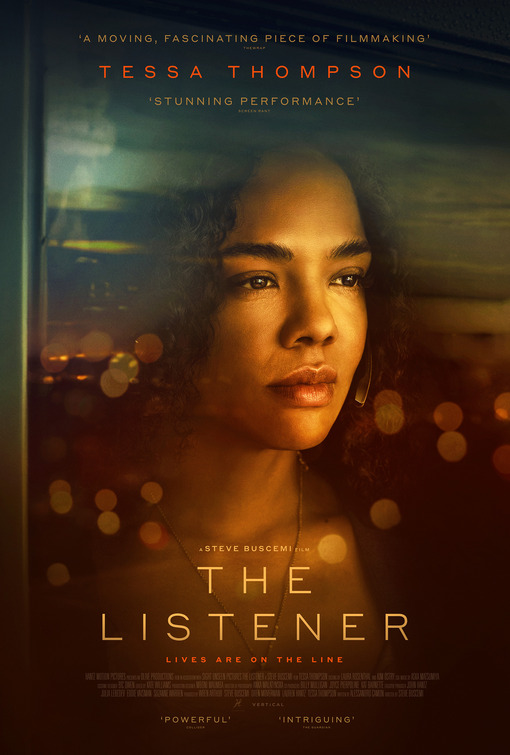By Greg Wright, NASW Communications Director
While most of the nation is sleeping, the work of overnight crisis hotline worker “Beth” is just beginning.
Working remotely from home, still wearing a pajama top and a chemise, Beth takes calls from people experiencing a variety of crises. An Afghanistan War veteran still haunted by nightmares of a civilian mother he accidently shot and killed; a woman living with mental illness who no longer has health insurance and is off her medications and displaying mania; and a young woman who is a runaway and unhoused who is being pressured by her boyfriend to go into prostitution.
Beth is portrayed by award-winning actress Tessa Thompson in the film The Listener, which opened in theaters on March 29 and is now available on streaming services such as Amazon Prime TV, Apple TV, Google Play Movies, YouTube, and Fandango at Home.
Beth’s work is so mentally draining (she listens patiently to callers and tries to connect them to mental health and other services) that she takes a break to listen to calming music, massage her temples, and do yoga. But then Beth gets a call from a suicidal, unemployed sociology professor that forces her to reluctantly tap into her own history of trauma to offer hope and possibly save a life.
The film is directed by acclaimed character actor Steve Buscemi (known for films such as Fargo and The Big Lebowski and the hit HBO series Boardwalk Empire and The Sopranos) and one of the producers is Oren Moverman, a director an screenwriter who has a longstanding relationship with the National Association of Social Workers.
Moverman said the film’s team is working with mental health organizations and hope the movie will be a learning tool. He invites social workers to watch.
There are almost 730,000 social workers in the United States an about 113,000 work to help people cope with mental illness and substance use disorders, according to the Bureau of Labor Statistics.
In the film, Beth is identified as a peer advocate who answers calls from people who have experienced similar mental health or substance use disorders. However, Mel Wilson, NASW’s Senior Policy Advisor, said many clinical social workers work at nonprofit organizations that offer crisis call lines such as the one represented in Moverman’s film.
People who answer nationwide 988 Suicide and Crisis lines also refer people who are undergoing distress to organizations that employ clinical social workers, he said.
Wilson praised The Listener, saying it will help raise awareness about the critical services mental health professionals such as social workers provide.
The film also alluded to the increased demand for mental health services due to the isolation and economic uncertainty spawned by the COVID-19 pandemic.
“It’s a busy night,” Beth says to one caller. “They always are. Right now, it’s busier than ever.”
Learn more about The Listener and watch a trailer of the film at IMDB.com.




